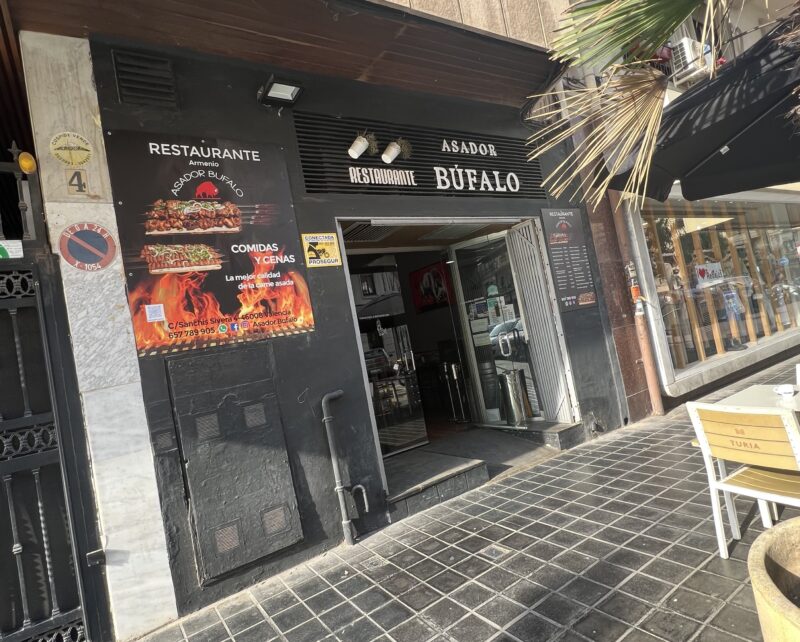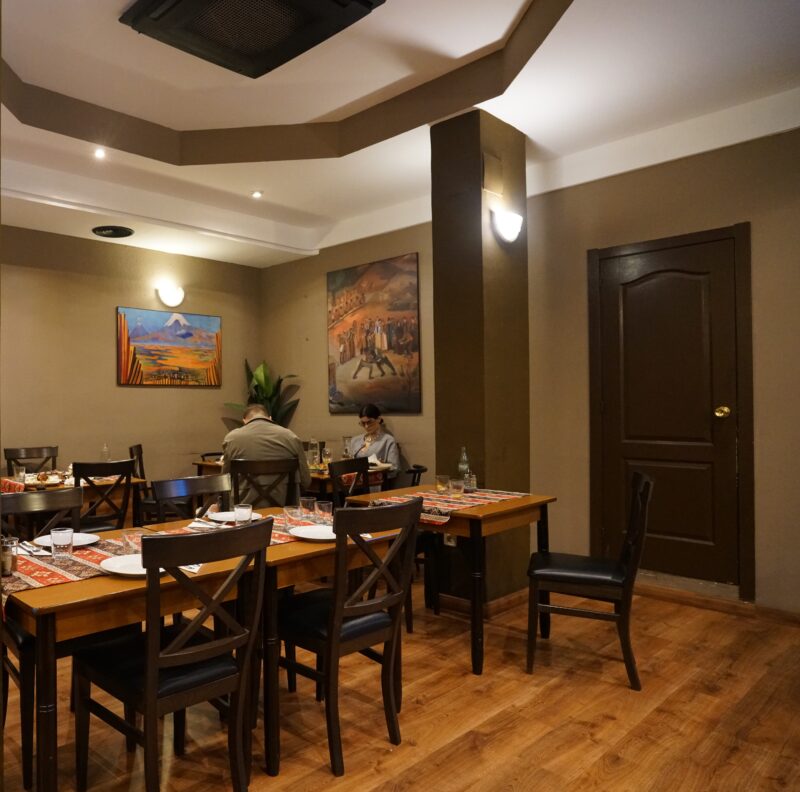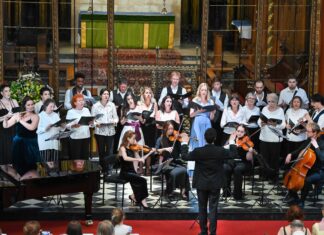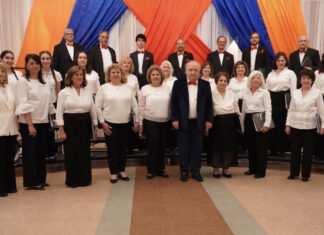VALENCIA, Spain — Armenian restaurants not only can serve great food but often may act as culinary representatives of Armenian culture in various corners of the world. Asador Bufalo, a lively Armenian restaurant in Valencia, is one such outpost. A small family-run restaurant, the owners and staff are recent immigrants from Armenia.

You might think that Asador is a Spanish version of the Armenian name Asadour, but in fact in Spanish it means barbecue, grill or spit, while Bufalo means much the same in Spanish as it does in English — buffalo. Marianna Nersesyan, part of the family that runs the restaurant, said that they do not have buffalo meat on the menu and the name was just chosen because they liked the way it sounded.

The menu includes all kinds of grilled meats and vegetables, served with lavash, Armenian salad, pastirma, Armenian wines and fruit compote drinks, and desserts like home-made paklava. The walls are decorated with reproductions of Armenian paintings by such masters as Martiros Saryan, and the tables have tablecloths with Armenian designs.
While Armenians have lived in Spain from the 16th century, if not earlier, the current Armenian community in Valencia, and in Spain in general, is a new one that is largely composed of Armenians from the Republic of Armenia and some other post-Soviet states who came starting in the 1990s. There are only estimates of the numbers of Armenians in Spain. According to the Armenian government (diaspora.gov.am) there are some 40-50,000 Armenians in Spain altogether, while the Armenian Church (https://www.armenian-church.eu/en/regioncategories/spain-en/) estimates this number to be no more than 15,000. Nersesyan was not sure of the number but leaned towards the higher range.
Nersesyan said that Armenians in Spain do not face any prejudice or problems, and praised Spaniards as very warm and people-loving.

The family that started Asador Bufalo came to Valencia in 2012, said Nersesyan, because they heard that people are very kind and the climate and ocean are great. First Marianna’s husband came, then the others, all in the span of three months.

Since the family had operated a restaurant in Armenia, they decided to continue the tradition in their new country. They started their own restaurant in 2021, but because of the pandemic restrictions, they had a tough time. Nonetheless, through the restaurant they got to meet many of the local Armenian community. While many Russian-speakers and other peoples from the former Soviet Union as well as the locals, come to the restaurant, Armenians compose the majority of customers, Nersesyan said.








